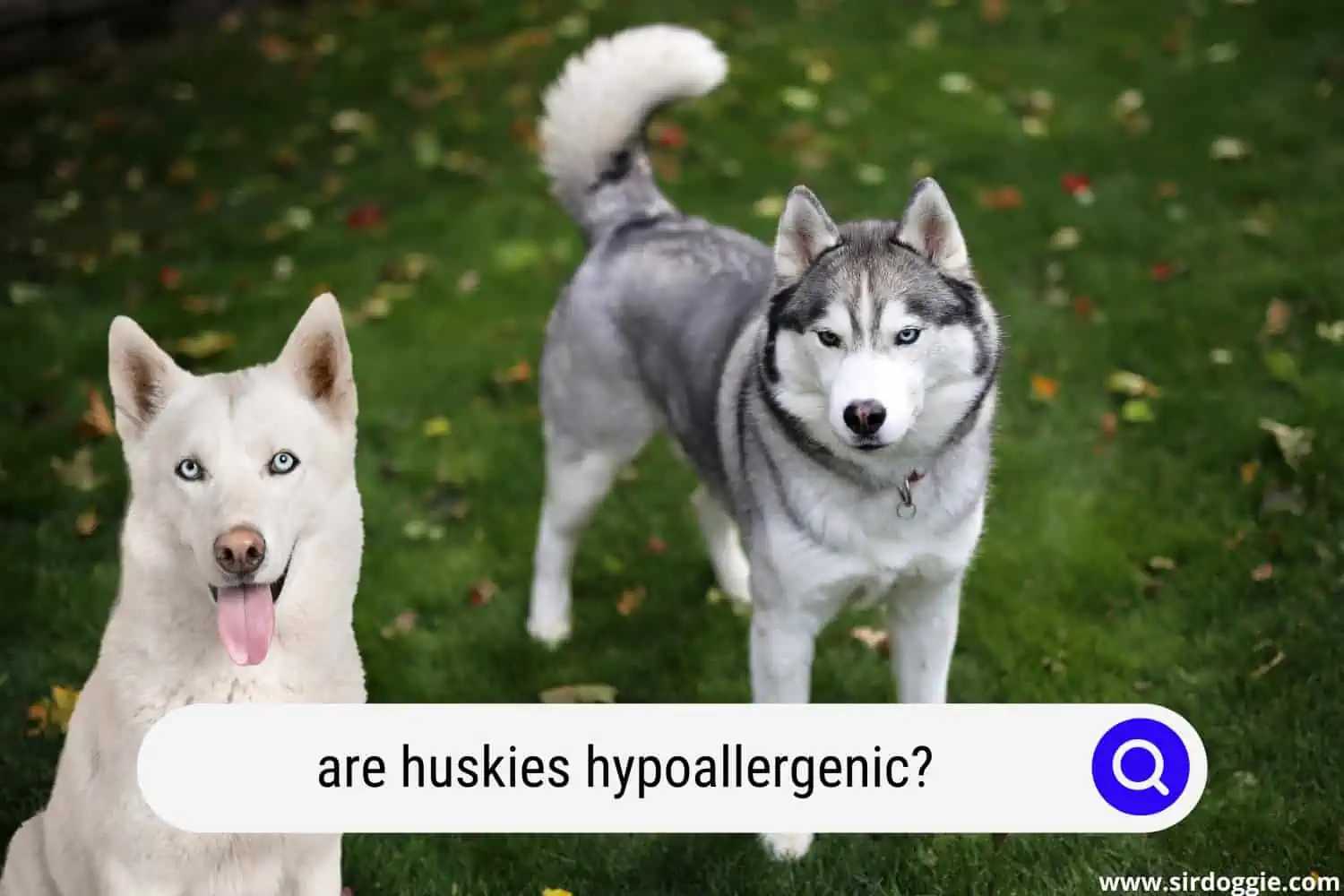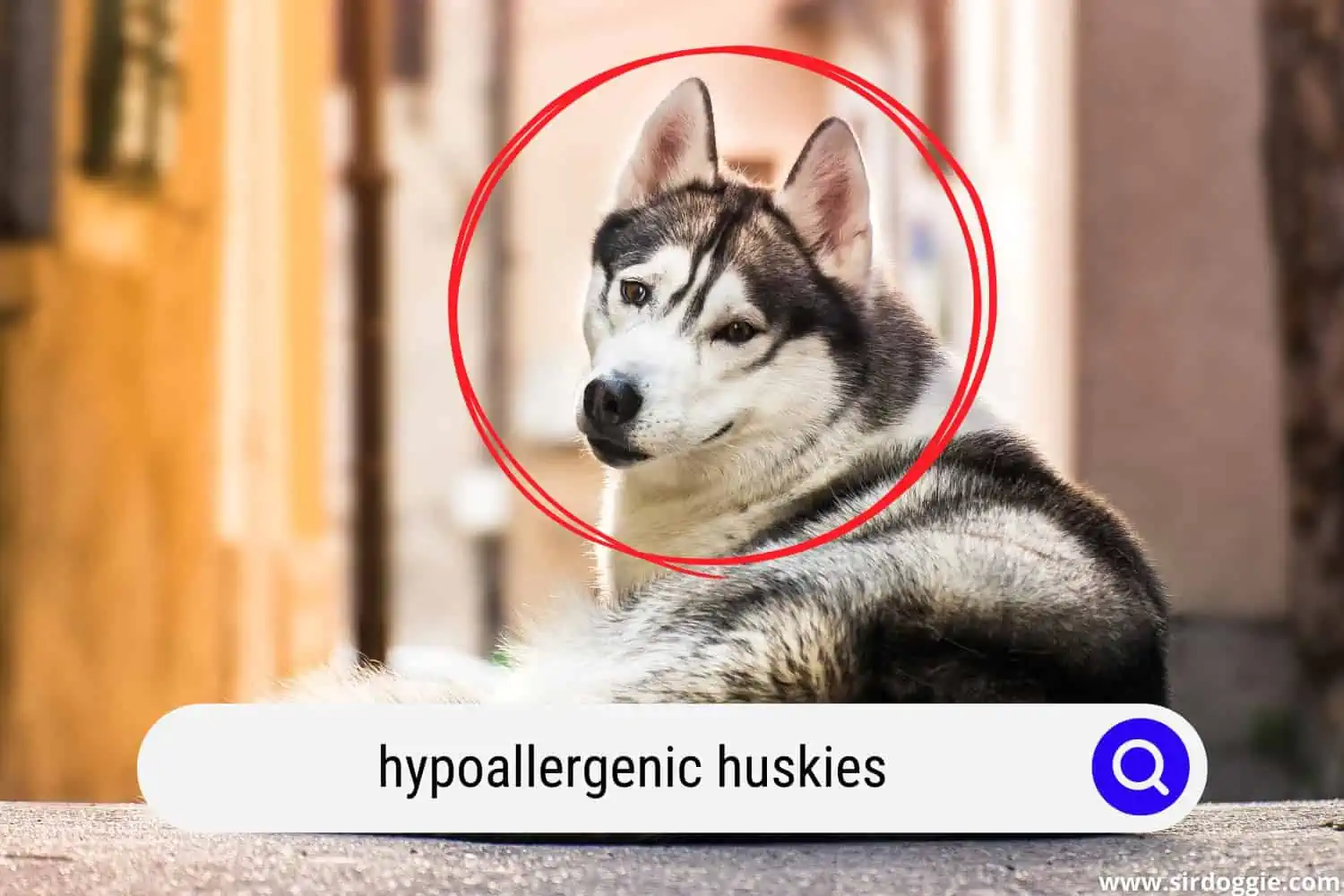Are Huskies Hypoallergenic?
Many people love to adopt dogs since they are incredible and loyal pets with whom we can spend beautiful moments throughout our lives. Each breed has different physical, emotional, or healthy characteristics that make them different from each other.

One of the most significant uncertainties that exist before acquiring a dog is the fact whether it is hypoallergenic or not. That is because many people can present different types of allergies, among which is that caused by the fur of the animal. It is for this reason that there are certain families in the world that cannot have a canine.
In this case, we will talk about Husky dogs. There are several types of these canines, and each one presents small differences that characterize them. Generally, they are quite affectionate, friendly, and docile animals that are characterized by being excellent guard dogs.
They have a medium size and a weight that ranges between 20 kg and 35 kg. Its ears are erect, its neck is arched, its back is straight, and its eyes can be of various colors, but they are usually brown or blue.
The coat of this type of dog is one of its most attractive characteristics. It is long and dense and can adapt to the environment where the pet lives. That means that in hot weather the Husky will lose its undercoat, but in cold weather, it will keep it. The color of the coat of this breed of canine will depend on its genetics and can be:
- White
- Black and white
- Red and white
- Sand brown and white
- Gray
It should be noted that Huskies shed their fur between one and two times a year, so it is advisable to brush it regularly to avoid spreading hair anywhere in the house. From this situation, it is essential to know if this breed of dog is hypoallergenic or not.
Are Huskies Hypoallergenic?
The first thing we should know is what hypoallergenic means. Hypoallergenic is the characteristic that some material has to help reduce the risk of allergic reactions.
The causative agent responsible for causing allergy is the allergen which is found in the skin or body fluids (saliva, urine, etc.) of this animal. That is why allergic people have to suffer reactions of this type when being licked by their pet or simply by the hair that it sheds.
A large number of people throughout the world suffer from allergies to cats and dogs. It should be noted that cats are more likely to cause an allergic reaction.
We must clarify that there is no 100% hypoallergenic dog breed. However, many allergy sufferers can comfortably live with certain types of dogs that have low allergen levels.
Unfortunately, this is not the case for the Huskies. This breed of canine is not hypoallergenic because they have a thick double coat that sheds between once and twice a year.
It should be noted that, unlike other non-hypoallergenic dogs, this breed has less allergen. It is for this reason that the allergies that these canines can cause will depend on the level of severity of the condition that the person presents.
As we have previously said, there are several factors that can cause allergies such as saliva, urine, and fur. However, one of the biggest triggers for allergic reactions is canine dandruff. All dogs produce dandruff and Huskies are no exception.
Dog Allergy Symptoms
Pet allergies are similar to other types of allergic reactions. If you are a person suffering from this condition, it may not be a good idea for you to get a Husky. There are several symptoms that you can present due to an allergic reaction, and the most common is difficulty in breathing.
There are other symptoms that can sometimes be severe. Some of them are stuffy nose, inflamed eyes, swollen and itchy throat, frequent sneezing, asthma attacks, hives, etc. In any of these cases, it is advisable to see a doctor immediately, especially when it is a severe case. That way, you can really ensure that an allergy causes this reaction.

Dog Allergy Prevention
Although a Husky dog is not hypoallergenic, there are certain methods or steps that will allow you to prevent any allergic reaction. The first thing you should do is go to the doctor so they can tell you what to do. He or she will undoubtedly prescribe a medication such as an antihistamine or a serious allergy shot.
However, taking medicine is not enough to 100% avoid allergic reactions caused by your Husky. One of the most important recommendations is to keep your Husky out of the room or out of the house (in more severe cases).
In this way, your dog will not be able to sleep with you in bed, and you will avoid contact with the hair that it sheds and, therefore, with allergens.
It is vital that you follow this recommendation to prevent both your dog’s hair and dandruff from sticking to the sheets or pillows of your bed.
Now, this situation will only work 100% depending on the severity of the person’s allergic condition. Therefore, keeping your Husky out of the room may not be enough.
In this case, you will have to choose to keep it outside the house to prevent it from shedding hair or dandruff anywhere. Perhaps this is very sad for you especially if you love your pet, but it is the best option if you want to continue living with it without having problems.
If you are an allergic person, a house with a backyard is an excellent option to live with a Husky since it will be able to run, jump, or do any activity without its life being in danger. It should be noted that you should take the necessary precautions when leaving your pet outdoors.
As the last recommendation, it is crucial that you always keep your house clean. Clean chairs, armchairs, desks, or tables to eliminate and avoid allergens. Similarly, you should keep yourself clean and wash your hands constantly.

Family Dog Expert Author
Hi there! I’m Stuart, a devoted dog lover and family dog expert with over a decade of experience working with our furry companions. My passion for dogs drives me to share my knowledge and expertise, helping families build strong, loving bonds with their four-legged friends. When I’m not writing for SirDoggie, you’ll find me hiking, playing with my beautiful dog, or studying music.